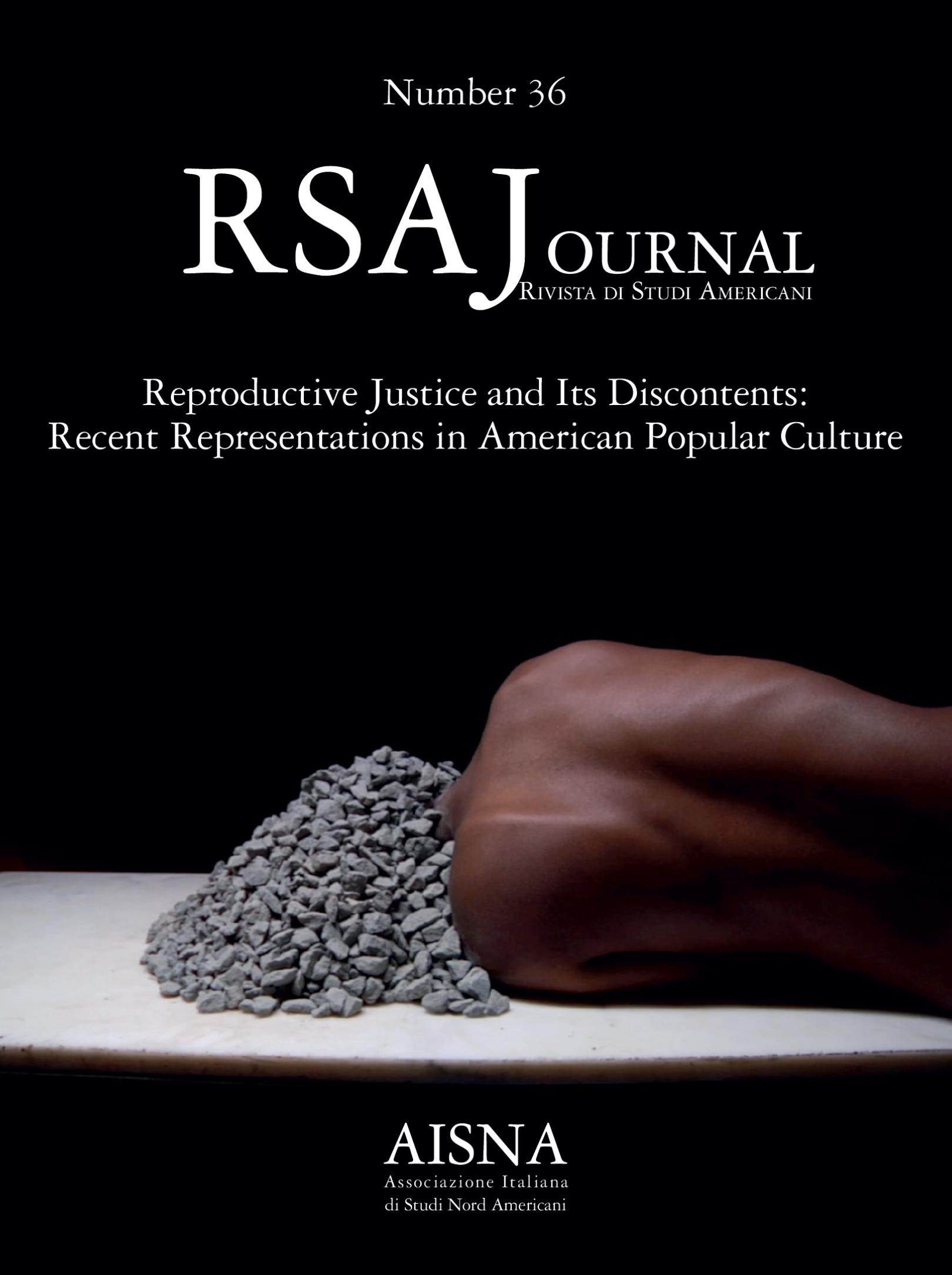“I Hear No Men Talking About It”
Male Stand-Up Comedians on Abortion
DOI:
https://doi.org/10.13135/1592-4467/11709Parole chiave:
Stand-up Comedy, Abortion, Gender, Stereotypes, OutsiderhoodAbstract
In his 2023 stand-up special, From Bleak to Dark, comedian Marc Maron wonders why men do not address the Supreme Court’s decision in Dobbs v. Jackson Women’s Health Organization, which ended the constitutional right to abortion in the United States. The question of who is, or should be, entitled to take a stand on the right to abortion, is up for debate, but so is Maron’s claim that there are “no men talking about it.” Quite a few male comedians have presented their – fictitious or real – views on reproductive justice on the stand-up stage, not only in their post-Roe shows but also over the course of the past few decades. Stand-up comedy is a unique forum for dealing with themes like gendered vulnerability and power relations, even exposing views that would be considered offensive or even unlawful outside of the comedic context. Narratives produced and reproduced in society are popularized in standup comedy, and when they reach streaming services like Netflix, they reach huge audiences. Seeing stand-up comedians as potential public intellectuals (Kunze and Champion), this article explores how groups and communities are constructed and deployed in stand-up (Brodie; Chesters), focusing on how US male comedians navigate the social debates on the issue of abortion in their stand-up shows. While this article acknowledges that the “definition of reproductive justice goes beyond the pro-choice/pro-life debate” (Ross and Solinger 9), it will focus specifically on abortion for two reasons. First, extending the discussion to parental rights and reproductive justice more generally would require a longer discussion than is possible in the scope of this article, and second, focusing on abortion reflects more precisely what is found in the comedic material of male stand-up comedians in the United States. Through analyzing a few examples from US comedians, I argue that while stand-up comedy on the theme of abortion by men often reinforces patriarchal norms, attitudes, and stereotypes, it also provides a platform for contesting them. I also argue that this dual function operates through a rhetorical practice that positions men as outsiders. While this rhetoric often deems women responsible for both pregnancies and abortions, as “public intellectuals,” stand-up comedians have the potential to deconstruct narratives of unequal gender relations and related social discussions.
##submission.downloads##
Pubblicato
Fascicolo
Sezione
Licenza
Copyright (c) 2025 Tuula Kolehmainen

Questo lavoro è fornito con la licenza Creative Commons Attribuzione - Non commerciale - Non opere derivate 4.0 Internazionale.
Avviso sul Copyright
RSAJournal applica una licenza CC BY-NC-ND a tutti i suoi contributi. Questa licenza consente agli utenti di copiare e distribuire il materiale in qualsiasi supporto o formato solo in forma non adattata, per scopi non commerciali e a condizione che venga esplicitato/a l'autore/autrice dell'opera. CC BY-NC-ND include i seguenti elementi:
- BY: L'autore deve essere riconosciuto come tale.
- NC: Sono consentiti solo utilizzi non commerciali dell'opera.
- ND: Non sono consentite opere derivate o adattamenti dell'opera.
Gli autori che pubblicano con questa rivista accettano i seguenti termini:
- Gli autori conservano il copyright e tutti i diritti di pubblicazione per i loro contributi alla rivista.
- Gli autori concedono alla rivista il diritto di prima pubblicazione in base alla licenza internazionale Creative Commons Attribution-NonCommercial-NoDerivatives 4.0, che consente ad altri di condividere l'opera non modificata per scopi non commerciali a condizione che venga esplicitato/a l'autore/autrice dell'opera e la sede di pubblicazione iniziale (questa rivista).
- Gli autori sono in grado di stipulare accordi contrattuali separati e aggiuntivi per la distribuzione non esclusiva della versione pubblicata dalla rivista (ad esempio, per inserirla in una repository istituzionale o pubblicarla in un libro), con l'indicazione che il contributo è stato precedentemente pubblicato in RSAJournal.




